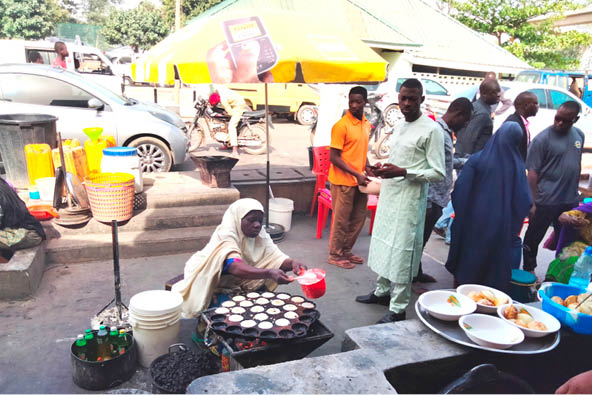In June 2016, I finally summoned courage to challenge the World Bank’s Ease-of-Doing-Business Index. See https://opinion.premiumtimesng.com/2016/06/08/ease-business-tope-fasua// . I mean, who was I, a ‘motor park economist’ as Governor Fayemi (perhaps fondly), and those guys who responded to me from the Osinbajo camp (disdainfully) called me. I will write about ‘motor parkism’ in economics someday down the line but suffice to say I must have inherited the moniker from Peter Alexander Adione-Egom, fiery Guardian columnist of blessed memory. I forge ahead, despite my defective education. I keep learning daily to cover for my defects anyway. So, I felt there was something wrong about the index. It just wasn’t ministering to me. I looked a little closer and didn’t like what I saw. I realised the index is great if a foreign company wanted to come to Nigeria, but almost useless when a Nigerian company is trying to survive and scale here. I suggested to government that perhaps we should develop an alternate index. Nothing happened. I know though, that it is impossible for government to show that they have alternate ideas from what the multilateral agencies propose. These ‘donors’ breathe down their necks and they dare not step out of line. Still, it is what it is and we who are outside their loop and privileges must continue to think and fight for our country.
The index contains 10 sub-indices by which a country is judged whether it is doing better in encouraging businesses. These are:
- Ease of starting a business
- Ease of dealing with construction permits
- Ease of getting electricity – procedure, time, cost
- Ease of registering property
- Ease of obtaining credit
- Protecting minority investors
- Ease of paying taxes
- Ease of trading across borders
- Enforcement of contracts
- Resolving insolvency
Upon closer scrutiny, I believed, right off the bat, that numbers 2, 4, 6, 7, 8, and 10 are rather tangential. But it was index number 6 (protecting minority investors) that gave the whole index away as something coined largely for foreign companies. Whereas it is great to encourage foreign investors and the index could be maintained for that purpose, I believe that at least part of our focus should be on making the lives of local investors a little easier too. Imagine number 10!
I cannot imagine opening a business as a local and be thinking about the ease of declaring bankruptcy or insolvency. Not also, that if this index, as is, is meant to help foreign investors, why include ease of obtaining credit? The case of Etisalat’s challenges in Nigeria revealed that oftentimes, these foreign investors that we bring in, end up putting so much pressure on our financial system rather than bringing in their own money. What we want is capital inflow, and a bit of expertise for our people. Isn’t that right?
Anyhow, I decided to develop my own index around what really matters for Nigerian businesses. I think we should encourage our own people to begin to fill in the space. For now, very few Nigerians are in the space where value is being added to any products. Yet, our dependency on foreigners must be reversed. I don’t believe that there is any big deal in beginning to strive to do what foreigners have always done for us. I think that to save ourselves from this long-dreaded cataclysm we need to start to move into some spaces.
If I am to think of what issues disturb, delay, and destroy businesses in Nigeria today (owned by anyone indeed), and which has to be tackled urgently, they are:
- Energy – availability and cost.
- Infrastructure
- Security
- Finding and retaining good staff
- Transparency in procurement. Including corruption of all sorts
- Sticking to the rules. Better and proper regulation.
- High rentals and cost of properties
- Influence of oligopolies/monopolies
- Crony capitalism
- Bad reputation of the country and her people
- Low purchasing power and per capita income
Most of the points are self-explanatory, and of course, I adopted some of the metrics of the World Bank EODB which I believe is only partially correct. Businesses do need energy to stay alive anyhow you slice and dice it. Right now, the tariffs have gone through the roof and the DISCOs are threatening more hikes. Diesel cost is also killing companies. But that is not the whole story about businesses. Neither is access to credit – another valid metric that I adopted in my own EODB for Nigerian businesses. Infrastructure availability beyond energy is a problem. Many businesses crumble because of the difficulty in accessing them, and the general malaise around infrastructure is a major factor for success or failure. What about insecurity. Without this, nothing moves. In fact, with the insecurity, many people prefer to stay at home, and even purchasing power as well as eagerness by consumers to spend. One thing that most analysts don’t talk about as often as they should, is the ease of finding good staff and retaining them. Every Nigerian wants to ‘blow’ and no one is willing to put in fairly good time learning and helping to grow a small business. These days, only women stay for a while. Boys/men are restless. And many even look for how to defraud organisations.

 Join Daily Trust WhatsApp Community For Quick Access To News and Happenings Around You.
Join Daily Trust WhatsApp Community For Quick Access To News and Happenings Around You.


